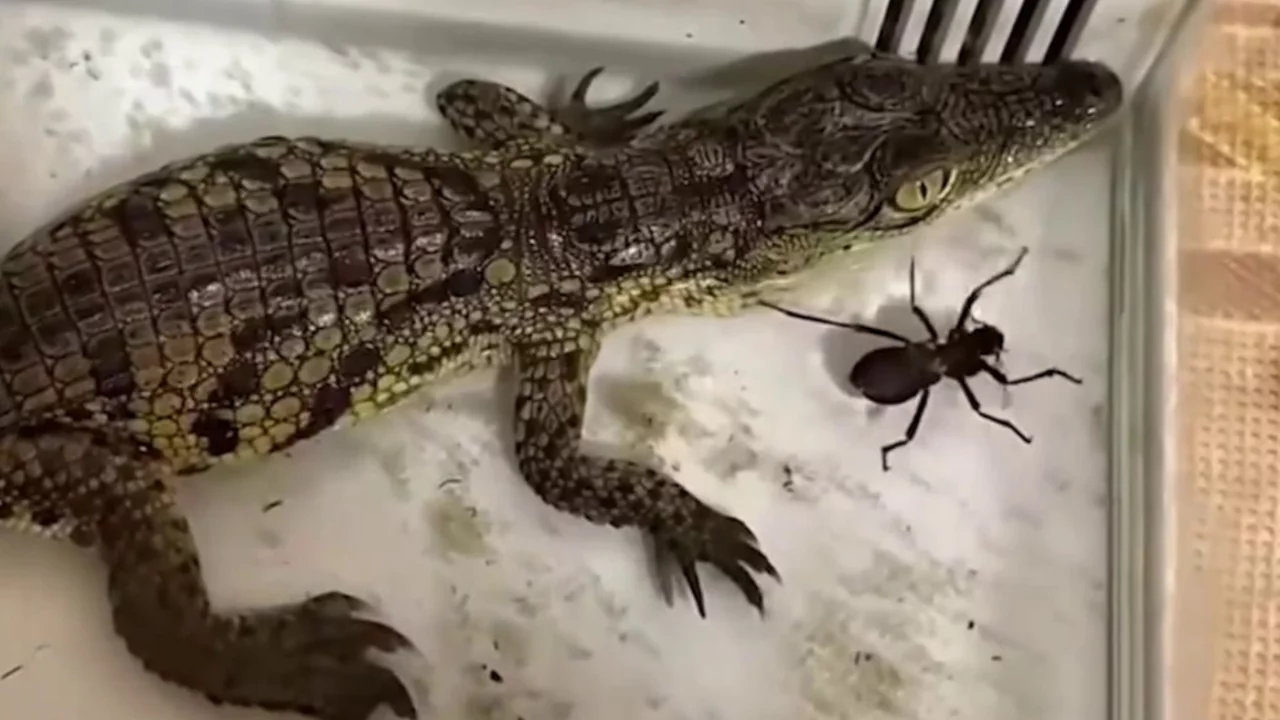Nile crocodile found in blogger's house in Tashkent: surprise and lawlessness

Recently, a video spread widely on social networks, attracting great interest and amazement from the broader public — it showed a resident of Tashkent keeping a Nile crocodile in his house. This situation drew attention not only from internet users but also from official institutions — in particular, the Ministry of Ecology, Environmental Protection, and Climate Change.
A prompt investigation was conducted by the Ministry on this matter. During the probe, it was discovered that the incident was real: the blogger was keeping a Nile crocodile in his living quarters without any permits. This conduct was evaluated by the competent authorities as a violation of the law.
Responsibility before the law
Following the raid, an administrative protocol was drawn up against the blogger under Part 1 of Article 92‑1 of the Code of Administrative Liability of the Republic of Uzbekistan. The collected documentation was submitted to the court to provide a legal assessment and take appropriate measures.
Although the blogger’s identity has not been made public yet, his illegal activity sparked many discussions. The Nile crocodile taken from his home was temporarily handed over to the Tashkent Zoo.
Nile crocodile — a dangerous and protected species
The Nile crocodile is widespread in Africa and is known for its predatory nature and large size. Keeping it in captivity requires special conditions, a large territory, and sufficient biological resources. Therefore, keeping such an animal at home is considered not only dangerous but also illegal.
The rules for the keeping, breeding, or display of such species are clearly defined in Uzbekistan’s legislation. According to Resolution No. 736 of the Cabinet of Ministers, effective from January 1, 2025, it is strictly forbidden for individuals to keep wild animals in captivity or use them in circus shows.
Different reactions in society
This incident caused heated discussion on social media. Some criticized the blogger as a “showman” who sought to draw public attention with his antics, while others emphasized that such actions must be regulated by law.
Environmentalists assessed the incident as a threat to ecological balance. They noted that when natural boundaries between wildlife and humans are violated, it may bring dangers not only to people but also lead to fatal consequences for the animal itself.
Conclusion: every citizen must be responsible
This case reminds us of an important truth: non-compliance with the law poses threats not only to personal but also to public safety, especially in human–wildlife interactions.
Curiosity and love for animals are good, but they must be exercised within the law. Crocodiles, predatory birds, and other wild animals are not objects of entertainment or practice — they have their own natural habitat and protection regime.
Now the court will give a definitive verdict on this case. We hope this incident will serve as a lesson for others. Read “Zamin” on Telegram!
Ctrl
Enter
Found a mistake?
Select the phrase and press Ctrl+Enter 




















